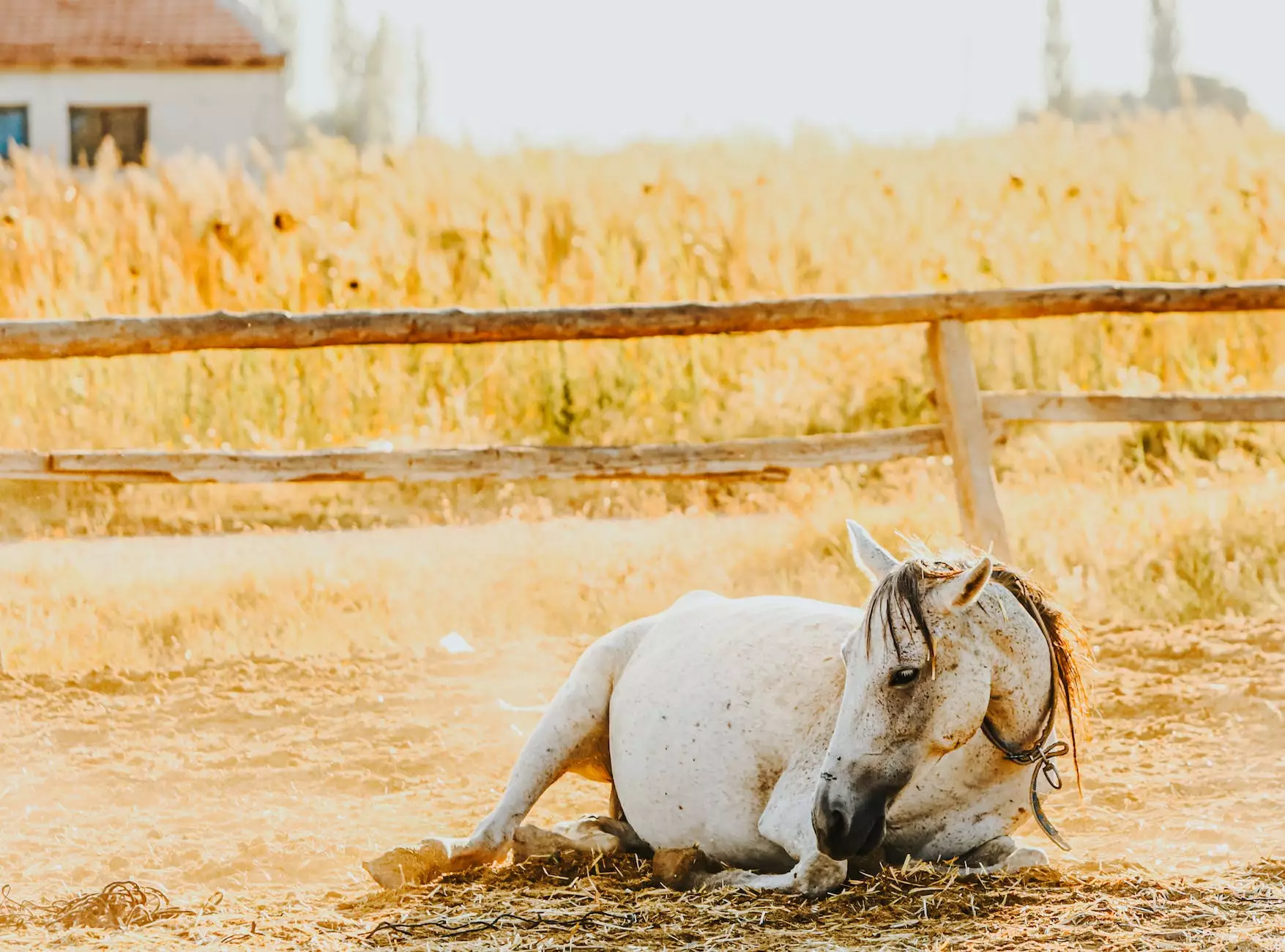How Spaying or Neutering Your Pet Can Prevent Health Problems - Lasers4Horses
Services
The Importance of Spaying or Neutering Your Horse
As a responsible horse owner, it is crucial to understand the significance of spaying or neutering your pet. Spaying refers to the procedure conducted on female horses, while neutering is performed on male horses. These procedures offer several health benefits, contribute to population control, and enhance the overall well-being of your horse.
Benefits of Spaying Female Horses (Mares)
Spaying female horses not only eliminates the possibility of unwanted pregnancies but also helps prevent various health problems. Here are some key benefits of spaying your mare:
- Prevention of Reproductive Disorders: Spaying significantly reduces the risk of uterine infections, ovarian cysts, and mammary tumors in mares.
- Behavioral Improvement: Spaying can help in managing hormonal behaviors such as aggression and mood swings, making your mare more calm and manageable.
- Prevention of Stallion-Like Behaviors: Spaying helps prevent heat cycles and reduces the chances of your mare displaying stallion-like behavior.
- Elimination of Heat Cycling: Spaying prevents regular heat cycles, which eliminates the need for hormonal treatments or behavioral modifications during the breeding season.
- Decreased Risk of Injury: Spayed mares are less likely to become injured or agitated due to interactions with stallions during breeding attempts.
Benefits of Neutering Male Horses (Geldings)
Neutering male horses also brings numerous advantages to their health and behavior. Take a look at the key benefits of neutering your gelding:
- Prevention of Testicular and Prostate Disorders: Neutering significantly reduces the chances of testicular tumors and infections. It also lowers the risk of prostate-related health issues in male horses.
- Curbing Unwanted Aggression: Neutering helps reduce aggressive behaviors in male horses, making them easier to handle and interact with.
- Prevention of Roaming and Breeding Urges: Geldings are less likely to roam or exhibit breeding urges, which can lead to injuries and accidents.
- Mitigation of Dominance-related Issues: Neutering can help prevent dominance-related issues that often arise in herds due to the presence of intact stallions.
- Simplifies Management: Neutering eliminates the need for separate stabling and paddocks for intact males, simplifying their overall management.
Choosing the Right Time for Spaying or Neutering
The optimal time for spaying or neutering your horse depends on various factors, including their age, overall health, and intended use. It is crucial to consult with your veterinarian to determine the most appropriate timing for these procedures.
When to Spay a Female Horse
In general, mares can be spayed as early as 6 months of age. However, the decision should be based on your horse's development and veterinary advice. Spaying can also be performed in mature mares, but the recovery time may be longer compared to younger ones.
When to Neuter a Male Horse
Male horses are usually gelded between the ages of 1 to 3 years. However, the timing may vary depending on individual circumstances. It is important to consider factors like behavioral development, growth plates closure, and the advice of your veterinarian when deciding the appropriate age for neutering.
The Spaying and Neutering Process
The spaying and neutering procedures involve surgical intervention and should be performed by a qualified veterinarian. Here is a general outline of the process:
Spaying Process
The spaying process, also known as an ovariohysterectomy, involves the removal of the mare's ovaries and uterus. It is usually performed under general anesthesia, and the horse may require a short hospital stay for post-operative monitoring and recovery. The procedure helps prevent unwanted pregnancies while offering numerous health benefits.
Neutering Process
Neutering, also referred to as castration, involves the removal of a male horse's testicles. It is typically done under general anesthesia, and the horse can usually return home the same day. The procedure eliminates the ability to sire foals and provides various health and behavioral advantages.
Conclusion
Spaying or neutering your horse is an essential aspect of responsible horse ownership. These procedures offer a wide range of benefits, including the prevention of reproductive disorders, improved behavior, reduced risk of injuries, and simplified management. Consult with your veterinarian to determine the best timing and approach for spaying or neutering your beloved equine companion. Take proactive steps towards enhancing your horse's overall health and well-being through the responsible choice of spaying or neutering.
For more information, advice, or veterinary guidance specific to your horse, feel free to reach out to Lasers4Horses, your trusted partner in equine care.










